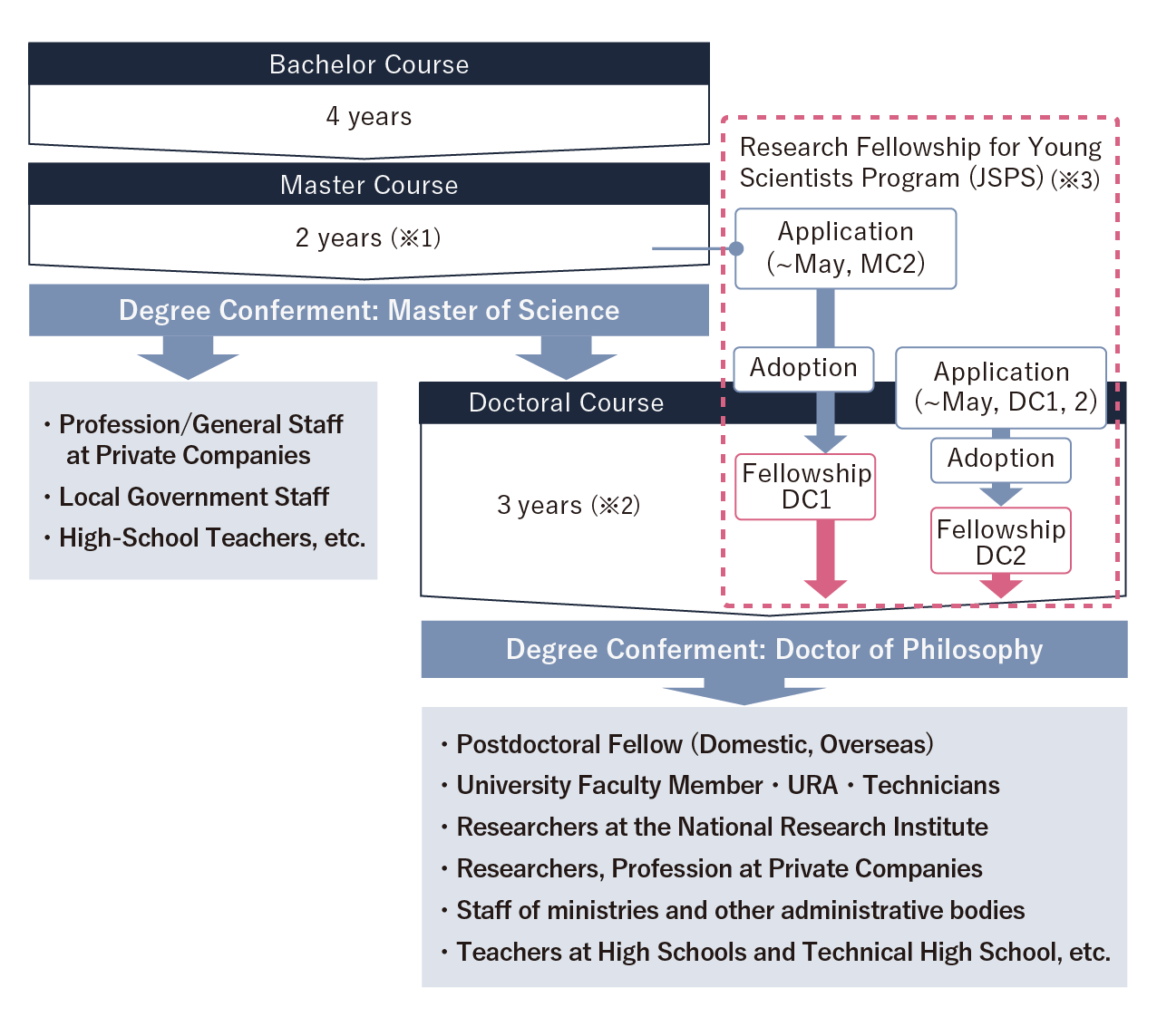Overview of the Graduate School of Science
 As we enter the 21st century, the natural sciences are deepening and diversifying at an accelerated pace, giving birth to new interdisciplinary research fields and creating a diverse range of advanced science and technology. In addition, society demands that we further strengthen research in the natural sciences, from the basics to applications, and that we foster the human resources who will be responsible for the next generation of science and technology.
As we enter the 21st century, the natural sciences are deepening and diversifying at an accelerated pace, giving birth to new interdisciplinary research fields and creating a diverse range of advanced science and technology. In addition, society demands that we further strengthen research in the natural sciences, from the basics to applications, and that we foster the human resources who will be responsible for the next generation of science and technology.
The Graduate School of Science, which is responsible for basic education and research in the natural sciences, has been reorganized since FY 2006, in cooperation with other graduate schools, in order to respond to the above academic trends and social needs, and currently consists of the Departments of Mathematics, Cosmosciences, Condensed Matter Physics, and Natural History Sciences.
The mission of the Graduate School of Science is to develop individuals with advanced and specialized knowledge of the natural sciences, a broad perspective, the ability to discern the essence of problems from deep insights, and the ability to promote original research to clarify truth and solve problems. Our goal is to produce human resources who can play an active role not only in universities and other educational and research institutions, but also in a wide range of public and private institutions and companies, by demonstrating the advanced expertise and research skills cultivated in the Graduate School of Science.
Basic Policy
Since many of the new technologies that contribute to society are built on basic science education, education at the Graduate School of Science requires a different perspective than other practice-oriented graduate schools. Specifically, rather than aiming for a variety of national qualifications, the Graduate School of Science will practice education that cultivates the following skills:
- The ability to carry out basic science research and higher science education in the future.
- The ability to contribute to the creation of innovation in private companies using advanced scientific knowledge.
- The ability to play an active role in local government and elementary and secondary schools with independence and adaptability, making use of the knowledge they have acquired through in-depth study of basic natural science and mathematics.
- The ability to communicate the fundamentals of science and the results of advanced scientific research to the public in a way that is easy to understand.

※2 Students with outstanding achievements may be allowed to complete the program after three or more years of graduate study, including the master course.
※3 Research Fellowship for Young Scientists Program (JSPS) website: https://www.jsps.go.jp/j-pd/
